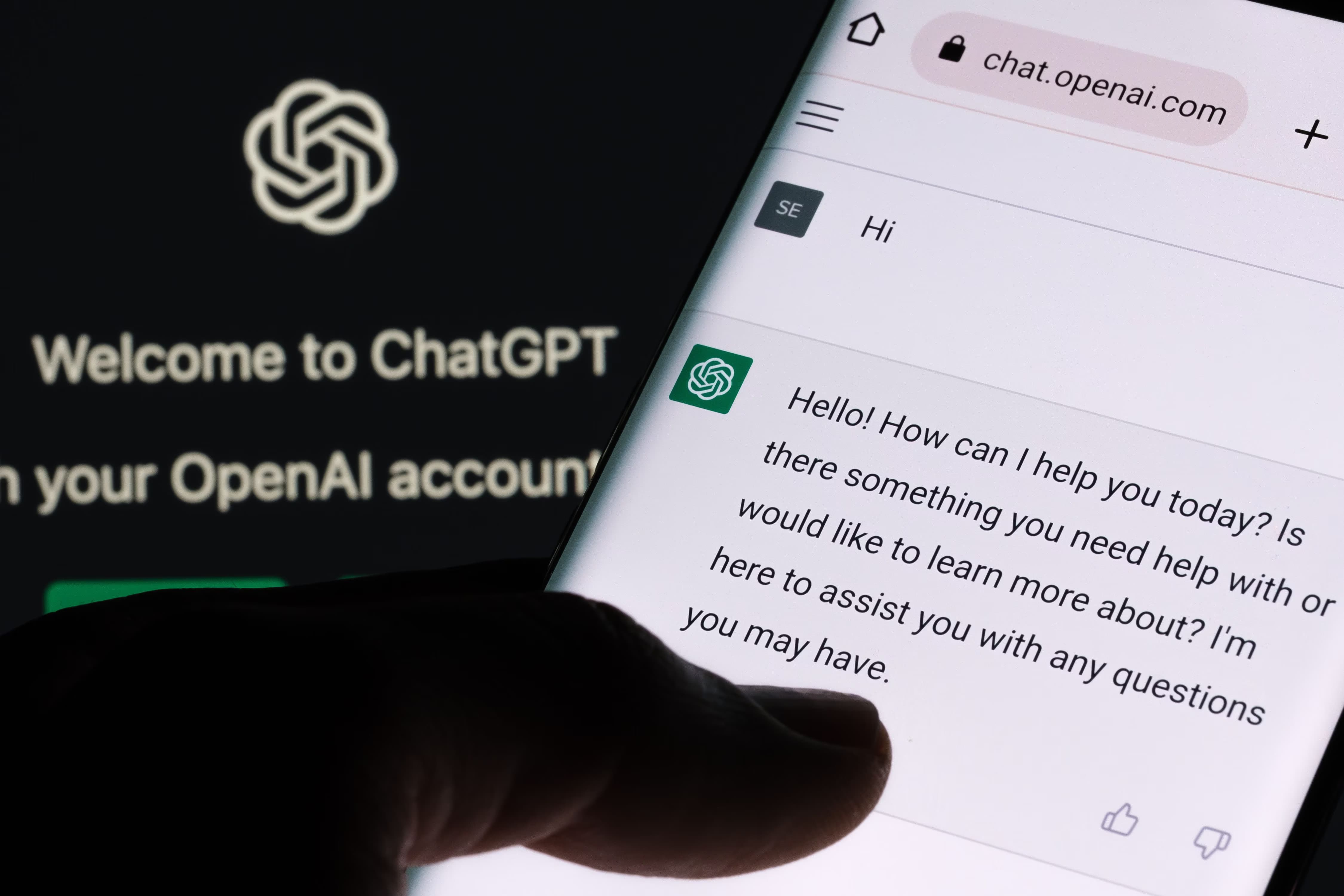 |
| ▲ Practical Use Screen of ChatGPT (Source: Boston Global) |
Attention is being focused on, "ChatGPT," an interactive AI chatbot developed by OpenAI, a non- profit research institute in the U.S. ChatGPT achieved 10 million daily- active- users (DAU) within 40 days of its launch and 100 million monthly- active- users (MAU) within two months. It is an amazing feat, considering that Instagram took 355 days to achieve 10 million DAU and 30 months to achieve 100 million MAU, after its launch. Companies are also interested in the usage of ChatGPT. As Microsoft, an early investor in OpenAI, combined ChatGPT with its search engine Bing, Google also released its own AI, ‘Bard.’ Baidu, China's largest portal, also said it would launch a similar service, ‘ErnieBot.’
What exactly is ChatGPT, which is attracting worldwide attention? OpenAI, the production company of ChatGPT, has been developing artificial intelligence specialized in various fields since 2015. Among them, GPT was a name of an artificial intelligence specialized in language. ChatGPT is developed based on GPT- 3.5, which uses 1,500 times more parameters than the earliest version GPT- 1, and is taken to another level by using reinforcement- learning, with an extensive. While the search engines give fragmented answers to a search term, ChatGPT provides answers by using conversational methods and creates sentences according to the situation, based on pre- learned (programed) content. That is the meaning of GPT: Generative Pre- trained Transform. Since the performance of ChatGPT overgrew to the area of writing, composing, programming, and translation, it was acclaimed as a replacement for the position of the modern search engine.
However, there are problems with the usage of ChatGPT. Many educators showed concerns over academic misconduct and the potential of detrimental effects on student learning. A professor of Wharton School at the University of Pennsylvania, tested ChatGPT with the final examination of one of the business school subjects, and it resulted in a B-. In the University of Minnesota Law School, ChatGPT took four final exams, and it resulted in an average grade of C+. As for this, the U.S. state of New York decided to block access to ChatGPT from networks in local public high schools. The University of Washington and the University of Vermont regulated usage of AI as plagiarism through school regulations. Harvard University and Yale University stated that they will inspect the articles using, "GPTZero," program, to determine whether ChatGPT was used to write the article. Other countrie, such as the U.K, are discussing ways to ban the use of ChatGPT from the school evaluation. In Korea, an international school in the Seoul caught students who submitted an English essay written in ChatGPT on February 8. All the essays were graded with a result of zero points. The Ministry of Education is also making efforts to come up with countermeasures, such as holding a forum and internal events to discuss how to use ChatGPT in education.
There are also high concerns about ChatGPT's violation of intellectual property rights. Lee Dong-won research team at Pennsylvania State University, said that texts generated by GPT-2, which can be seen as the previous stage of ChatGPT, were found to be in verbatim from reports, paraphrases, and ideas, resulting in plagiarism. In December last year, there was a movement within some science circles of the possibility of including ChatGPT as one of the 12 co- authors on MedRxiv, a pre- release medical paper site, but well- known journals, such as Spring Nature, a publisher, which publishes about 3000 academic journals including the famous science journal, Nature, and Science, announced that they would not approve ChatGPT as an author of a paper.
According to CNBC, Bill Gates, the founder of Microsoft, told German business magazine, Handelsblatt, that ChatGPT is a groundbreaking invention for the PC and Internet, in February. ChatGPT has hads many problems due to expectations for its development. Therefore, in line with the development of AI technology, users' ethical awareness and regulatory systems should also be prepared as soon as possible to maintain autonomy.
By Kim So-ha, cub-reporter lucky.river16@gmail.com
<저작권자 © The Campus Journal, 무단 전재 및 재배포 금지>

 Shrinkflation, Consumer Deception
Shrinkflation, Consumer Deception




